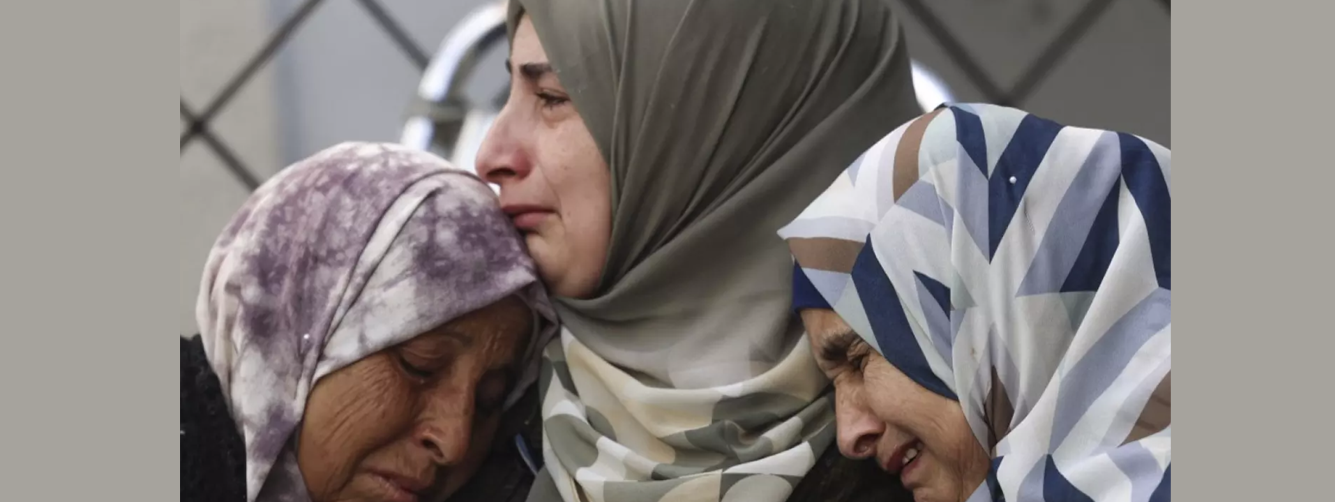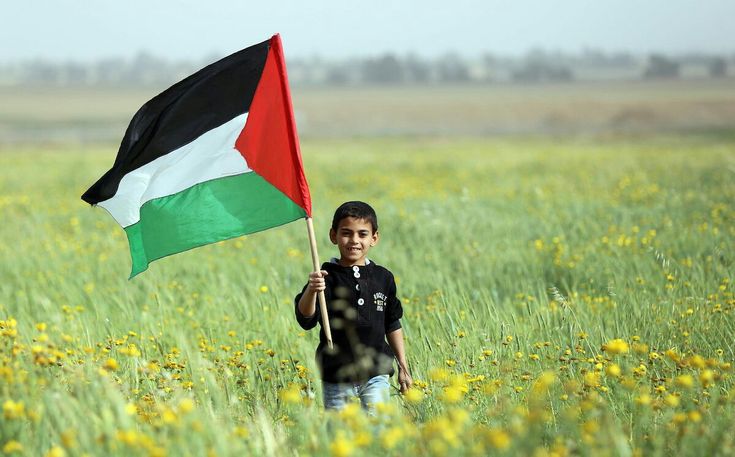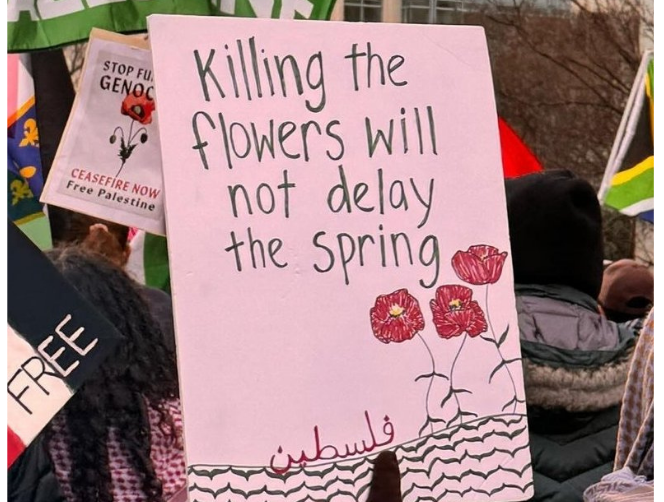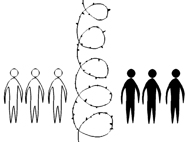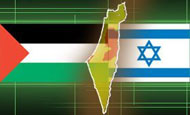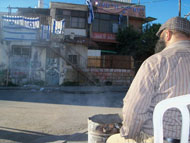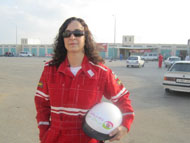
I’m still out of breath. It seems witnessing car racing has that effect. This past weekend, on Friday, March 26, the Palestinian Motor Sports Federation held its first race of the season in the northern West Bank city of Jenin. I’ve taken to describing the experience as the Palestinian version of the notorious street racing movie, “The Fast & the Furious.” Throngs of young men gathered at the makeshift race track in a back alley of the industrial area of the city to cheer on their hometown and witness what many would describe as a “guy’s sport.” Those many are gradually being proven wrong. Despite being able to count the number of women in the crowd on my hands, they were there – not only watching and rooting, but competing. I was befuddled when a friend called me up and asked me if I wanted to help her film women race car drivers in Palestine. Women race car drivers? In Palestine? I didn’t even know Palestine had a racing league.
We hitched a ride to Jenin with Suna Aweidah, better known on the tracks as “Malika Sibaaq Al-Sayyarat” (Queen of the Car Races). “Firstly, I race cars because I enjoy driving, and I simply love racing; I love the speed,” she says with a wink, “But I also think it’s important to show the strength of Palestinian women; to let men know that we are just as capable to do anything we’d like.” With a laugh she added, “(To prove) we can do what we want, when we want.” She later proved her point most appropriately by leaving us in a trail of dust as she vroomed off to show the boys how real donuts are done. Suna and her other female team mates subsequently redefined what “cool” meant to me from that point forward.
I suppose, based on what I know of Palestinian women from personal experience, this should not be entirely surprising. Particularly since the first Intifada, Palestinian women have been at the forefront of the struggle for independence, both for themselves and their communities, consequently elevating and diversifying their roles in Arab society. Initially recruited to contribute to the quest for national independence, young women engaged in Intifada activities began to question social norms and believed that their vital roles as active participants in a future government would continue. Although there was a lull in this progress and participation from women during the second Intifada, Palestinian women continue to prove that they are just as capable as their male counterparts at anything they set their mind to.
“Women have always had these (leadership) roles,” Suna contends, “in their families, and in their homes. But they’ve only been appearing more (publicly) lately.” As we zigzagged our way through the West Bank’s hilly and winding roads, I asked her if she felt the occupation played a part in women’s empowerment movements. “Oh, definitely. The political situation in Palestine forced women to be strong, to go out and work to support their families.” As with the history of resistance movements in other global contexts, women in Palestine were able to capitalize on the greater visibility and influence they gained through their contributions to the national struggle to challenge and transcend traditional gender roles.
Despite such progress and a greater transference of women’s roles from the private to the public sphere, however, some women still feel that there has been a noticeable pattern of depoliticization and gendered nationalism since the second Intifada. I recently got into this discussion at a café with a young woman from Jerusalem: “Men dominate the politics in the entire region let alone in this country," she said. They’re in charge of all the major decision-making and they lead these political parties that have done little for the welfare of the Palestinian people since the big mistake that was the Oslo Accords.” Letting the ashes from her cigarette fall into her empty cup, she continued, “Sure, we as women have made progress in our social rights, and perceptions and expectations are slowly changing as our daily struggles often force us to be strong and independent, but there is still a strong feeling that the men, and even our communities, feel threatened by having a greater presence of women in such typically male-dominated arenas.”
In the “man’s world” of car racing, this threatened feeling is no different. “Sure, men tried to intimidate me and the other women, especially as they learn that we are competition. However, we still work hard and try our best.” In Suna’s case, she faced several obstacles simply trying to convince her family to let her race: “I've always loved driving and when I heard in 2005 that they were starting races, I wanted to join. But because it was street racing and only men were competing then, my family said no. However, they were ok with me competing in a women’s only go-cart race in Sharm El-Sheikh. After I placed towards the top in that competition – my very first time racing - I became stubborn and told them I was going to participate in the national street races.” Since then, Suna has become somewhat of a fan favorite, giving the crowds cause to chant her name enthusiastically when her turn comes up to run speed tests.
Yet, whether by showing their skills on the race track, going head on against political figures both in the PA and in Israel, or as they teach me to wrap the perfect war’a arnab (grape leaf), Palestinian women continue to astound me with their stories of fortitude and wisdom. They have inspired me with their contagious good humor, by reminding me to never give up. As Malikat as-Sibaaq says, “If you have a goal, try your best to reach it. Don’t lose hope.” She chuckles and adds, “Race towards your dreams!”
Hajr Al-Ali is a Writer for the Media and Information Department at the Palestinian Initiative for the Promotion of Global Dialogue and Democracy (MIFTAH). She can be contacted at mid@miftah.org.




